India benefited from Raisi's decision to overlook the criticisms concerning the Modi administration's approach towards Indian Muslims.
On May 20, Prime Minister Narendra Modi expressed his condolences for the passing of Iranian President Ebrahim Raisi, who perished in a helicopter accident. Modi posted a message on X, previously known as Twitter, stating that India is in solidarity with Iran during this difficult period.
Prime Minister Narendra Modi expressed his deep sorrow and shock over the tragic loss of Dr. Seyed Ebrahim Raisi, President of the Islamic Republic of Iran. He acknowledged President Raisi's efforts in enhancing the relationship between India and Iran, noting that his contributions will not be forgotten. Modi extended his deepest sympathies to President Raisi's family and to all the people of Iran, affirming that India supports Iran during this difficult time.
According to state media, a helicopter transporting President Ebrahim Raisi, Iranian Foreign Minister Hossein Amir-Abdollahian, and other officials crashed in the Dizmar forest located in East Azarbaijan Province on Sunday. There were no survivors from the incident.
India's External Affairs Minister S Jaishankar expressed his condolences over Raisi's passing, describing it as 'shocking'. In tribute to those who lost their lives, India declared a national day of mourning on May 21.
At 63 years old, Raisi became the President of Iran in August 2021 and was considered a top contender to follow Ayatollah Ali Khamenei, who is 85 years old and the Supreme Leader of Iran.
Prime Minister Modi last met with President Raisi in August 2023, just before the BRICS summit in Johannesburg. During that time, New Delhi backed Tehran’s application to join BRICS, a group comprising Brazil, Russia, India, China, and South Africa. Iran was officially admitted into the alliance at the BRICS summit held in South Africa in September 2023.
Strengthening India-Iran Port Cooperation
Raisi developed robust economic relationships with India and Sri Lanka, yet there was little significant advancement with Pakistan, largely due to its struggling economy.
Asia was central to the foreign policy of the Raisi administration. Raisi critiqued the "Western-oriented" approach of his predecessor, Hassan Rouhani, who was in office from 2013 to 2021. Beginning in August 2021, Raisi's administration pledged to focus its foreign policy on Asia.
President Raisi maintained strong relations with India as well. India benefited from Raisi's decision to overlook the criticisms concerning the Modi administration's approach towards Indian Muslims.
Expanding India's Investment in Chabahar
On May 13, Shipping Minister Sarbananda Sonowal traveled to Tehran to finalize a decade-long agreement between India Ports Global Ltd and the Maritime Organisation of Iran. The agreement stipulates that India will invest approximately $120 million in the development and management of Shahid Beheshti Port in Chabahar and will also provide a $250 million credit for infrastructure improvements.
The latest agreement supersedes the original deal established in 2016, ensuring the continuation of India's operations at the Shahid Beheshti terminal in Chabahar port. This arrangement is pivotal for India as it provides a quicker access route to global markets. The total investment by India in Chabahar port is projected to reach $500 million.
Chabahar port's strategic position, merely about 550 nautical miles (approximately 1019 kilometers) from Kandla port in Gujarat, provides India with convenient access to Afghanistan, Central Asian nations, and Europe.
Chabahar is a key point in the planned International North-South Transport Corridor (INSTC), a multimodal transport route connecting the Indian Ocean and Persian Gulf with the Caspian Sea through Iran, and extending to northern Europe via Saint Petersburg. Industry estimates suggest that shipping via the INSTC route could be 15 days faster than using the Suez Canal route.
India is currently managing Chabahar port under an existing agreement with limited scope.
India has managed to steer clear of the repercussions from US sanctions on Iran by persuading the United States of the strategic significance of its bilateral agreements, securing a waiver in the process. However, the Joe Biden administration has officially stated that the most recent deal does not qualify for this exemption.
Iran as India's Regional Ally
India and Iran share deep historical and cultural ties.
Following the end of the Cold War, India has sought to keep warm relations with most nations in West Asia. Iran, neighboring both Afghanistan and Pakistan, plays a crucial role in the area.
The two nations established diplomatic ties with a friendship treaty in 1950. The 1979 Iranian Revolution marked the beginning of a "new phase of engagement," according to India's Ministry of External Affairs.
Trade and connectivity have been central to the relationship between New Delhi and Tehran. In the fiscal year 2022-23, India-Iran bilateral trade amounted to $2.33 billion. Although there was a decline in trade between New Delhi and Tehran in recent years, there was a significant increase of 21.77% in 2022-23 following Raisi's election in 2021.
According to Foreign Policy, India and Iran share mutual concerns over the Taliban's Sunni extremism and Pakistan's influence in Afghanistan, viewing Iran as a vital regional ally there.
A commentator for Deccan Herald noted that for India, Iran acts as a stabilizing presence in the Persian Gulf, with increasing military and security collaboration between the two nations.
US sanctions on Iran have impacted India's dealings with Tehran. Although India has paused its crude oil imports from Iran, New Delhi continues to engage with Iran despite the potential risks posed by US sanctions.
Raisi's Affinity for India Highlighted
Raisi, a 63-year-old hardline cleric with deep connections to India, originated from the province of Khorasan in Iran and was committed to strengthening ties with Eastern nations, including India, as per a report by Economic Times.
Sources familiar with Iranian politics indicated to ET that Raisi held a "special affinity" for India.
Many Indian families, particularly some from the Parsi community who settled in India, trace their origins back to the Greater Khorasan region in Iran, according to the report.
When Ebrahim Raisi, who had close relationships with Iran’s Supreme Leader Ayatollah Ali Khamenei, was inaugurated as President of Iran in August 2021, India was among the select few countries invited to the ceremony.
Iran-Pakistan-India Diplomatic Dynamics
Iran maintains relationships with Pakistan, although their interactions have occasionally been strained. During a recent visit to Islamabad, while Pakistani Prime Minister Shehbaz Sharif brought up Kashmir and expressed gratitude towards President Raisi for his "support," as reported by First Post, Raisi chose not to comment on Kashmir during their joint press conference.
Amid rising tensions between Iran and Israel in April, India called for calm, with External Affairs Minister Jaishankar reaching out to his counterparts in both countries.
During Raisi's presidency, Iran introduced a 15-day visa exemption for Indian tourists in February.
Strategic Continuity in India-Iran Ties
In summary, the article underscores India's proactive involvement with Iran, highlighting its substantial investments in the Chabahar port, the deep-rooted historical and cultural connections, and Iran's pivotal role as a regional partner. Despite the potential upheaval following President Raisi's demise, India is poised to maintain its engagement, looking to adapt and strengthen ties with Iran's forthcoming leadership.
The death of President Raisi could potentially trigger a phase of uncertainty and instability in Iran. The international community, particularly observers of geopolitical dynamics, will closely monitor the transition of leadership. This transition is crucial as it will dictate the direction of Iran’s domestic policies and its stance in global diplomacy. The forthcoming administration's approach to critical issues, including the nuclear program, relations with Israel, and interactions with the U.S., will be instrumental in shaping both regional and international political climates.
Moreover, this shift might intensify scrutiny and speculation concerning Iran's internal security and political stability. Any perceived vulnerabilities could empower adversaries, complicating Iran’s strategic navigation through the complex network of regional and global relations. Despite these challenges, India’s strategic focus on fostering and sustaining its relationship with Iran remains steadfast, poised to engage constructively with the new regime.
(The author of this article is a Defence, Aerospace & Political analyst based in Bengaluru. He is also Director of ADD Engineering Components, India, Pvt. Ltd, a subsidiary of ADD Engineering GmbH, Germany. You can reach him at: girishlinganna@gmail.com)
(Disclaimer: The views expressed above are the author's own and do not reflect those of DNA.)
![submenu-img]() How Kareena Kapoor, Hansal Mehta's The Buckingham Murders breaks moulds to emerge as a rare post-pandemic hit thriller
How Kareena Kapoor, Hansal Mehta's The Buckingham Murders breaks moulds to emerge as a rare post-pandemic hit thriller![submenu-img]() Bhool Bhulaiyaa 3 director Anees Bazmee on box office clash with Singham Again: 'Why should I talk to Ajay Devgn?'
Bhool Bhulaiyaa 3 director Anees Bazmee on box office clash with Singham Again: 'Why should I talk to Ajay Devgn?'![submenu-img]() Meet man, son of auto driver, resigned after being insulted as police constable, then cracked UPSC exam to become...
Meet man, son of auto driver, resigned after being insulted as police constable, then cracked UPSC exam to become...![submenu-img]() Congress releases manifesto for J-K polls, promises Rs 4000 to...
Congress releases manifesto for J-K polls, promises Rs 4000 to...![submenu-img]() Arjun Tendulkar shines with 9-wicket haul in dominant victory for...
Arjun Tendulkar shines with 9-wicket haul in dominant victory for...![submenu-img]() Mamata Banerjee और प्रदर्शनकारी डॉक्टरों के बीच हुई मीटिंग, जानें किन मांगों पर बनी बात
Mamata Banerjee और प्रदर्शनकारी डॉक्टरों के बीच हुई मीटिंग, जानें किन मांगों पर बनी बात![submenu-img]() Bihar Politics: बिहार की राजनीति में अब जासूसी कांड, Tejashwi Yadav ने लगाया बड़ा आरोप
Bihar Politics: बिहार की राजनीति में अब जासूसी कांड, Tejashwi Yadav ने लगाया बड़ा आरोप![submenu-img]() हरी झंडी दिखाने की मची होड़, धक्का-मुक्की में वंदे भारत ट्रेन के आगे गिरीं BJP विधायक, VIDEO
हरी झंडी दिखाने की मची होड़, धक्का-मुक्की में वंदे भारत ट्रेन के आगे गिरीं BJP विधायक, VIDEO![submenu-img]() जम्मू-कश्मीर में पहले चरण का चुनाव प्रचार थमा, 18 सितंबर को 24 सीटों पर डाले जाएंगे वोट
जम्मू-कश्मीर में पहले चरण का चुनाव प्रचार थमा, 18 सितंबर को 24 सीटों पर डाले जाएंगे वोट![submenu-img]() Shakira संग लाइव कॉ�न्सर्ट में हुई बदसलूकी, चोरी छुपे एक शख्स ने रिकॉर्ड किया Video
Shakira संग लाइव कॉ�न्सर्ट में हुई बदसलूकी, चोरी छुपे एक शख्स ने रिकॉर्ड किया Video![submenu-img]() Ford to return to India after 2 years with reopening of....
Ford to return to India after 2 years with reopening of....![submenu-img]() Maruti Suzuki launches new Swift CNG, check price, mileage, other features
Maruti Suzuki launches new Swift CNG, check price, mileage, other features![submenu-img]() ‘30 LPA, 3BHK, no in-laws’: Woman earning Rs 1.32 lakh salary lists demands for future husband, netizens say...
‘30 LPA, 3BHK, no in-laws’: Woman earning Rs 1.32 lakh salary lists demands for future husband, netizens say...![submenu-img]() In a big EV push, Centre launches Rs 10900 crore PM E-Drive scheme to replace…
In a big EV push, Centre launches Rs 10900 crore PM E-Drive scheme to replace…![submenu-img]() World’s longest car has helipad, swimming pool, mini-golf course, can seat over…; it cost…
World’s longest car has helipad, swimming pool, mini-golf course, can seat over…; it cost…![submenu-img]() Meet man, son of auto driver, resigned after being insulted as police constable, then cracked UPSC exam to become...
Meet man, son of auto driver, resigned after being insulted as police constable, then cracked UPSC exam to become...![submenu-img]() Meet woman who cracked UPSC at 22 without coaching while looking after ailing father, but then lost parents, now she...
Meet woman who cracked UPSC at 22 without coaching while looking after ailing father, but then lost parents, now she...![submenu-img]() Meet man, IIT graduate, who left Rs 1 crore salary job for UPSC, secured AIR 1 in 1st attempt, posted in...
Meet man, IIT graduate, who left Rs 1 crore salary job for UPSC, secured AIR 1 in 1st attempt, posted in...![submenu-img]() How to Crack NEET 2025 in First Attempt?
How to Crack NEET 2025 in First Attempt?![submenu-img]() SBI SCO Recruitment 2024 Notification: Sarkari Naukri for 1497 posts, check eligibility and selection process
SBI SCO Recruitment 2024 Notification: Sarkari Naukri for 1497 posts, check eligibility and selection process![submenu-img]() Kolkata Doctor Case: Protesting Doctors React After CBI Arrests Sandip Ghosh And Abhijit Mondal
Kolkata Doctor Case: Protesting Doctors React After CBI Arrests Sandip Ghosh And Abhijit Mondal![submenu-img]() Nitin Gadkari: Union Minister Nitin Gadkari Reveals He Was Offered Support For PM Post But Declined
Nitin Gadkari: Union Minister Nitin Gadkari Reveals He Was Offered Support For PM Post But Declined![submenu-img]() Kolkata Doctor Case: Junior Doctors Protest For 5th Night As Talks With CM Mamata Fail Again
Kolkata Doctor Case: Junior Doctors Protest For 5th Night As Talks With CM Mamata Fail Again![submenu-img]() Muslim Sculptor Crafts Tiny Ganesh Idols On Pencil Graphite #shorts #viralvideo #ganesh
Muslim Sculptor Crafts Tiny Ganesh Idols On Pencil Graphite #shorts #viralvideo #ganesh![submenu-img]() Jaishankar: EAM Dr. S. Jaishankar On India-China Relations & Disengagement Problems | Ladakh
Jaishankar: EAM Dr. S. Jaishankar On India-China Relations & Disengagement Problems | Ladakh![submenu-img]() Meet man, who turned Bajaj Housing Finance into Rs 137406 crore company, not from IIT, IIM, he is...
Meet man, who turned Bajaj Housing Finance into Rs 137406 crore company, not from IIT, IIM, he is...![submenu-img]() Meet woman who failed to secure a job, then built Rs 800 crore company by selling waste from home, her business is…
Meet woman who failed to secure a job, then built Rs 800 crore company by selling waste from home, her business is…![submenu-img]() Meet Mukesh Ambani's brother, 'third son' of Dhirubhai Ambani, who left his business to join Reliance, he is...
Meet Mukesh Ambani's brother, 'third son' of Dhirubhai Ambani, who left his business to join Reliance, he is...![submenu-img]() Meet man, an Indian, who is set to invest Rs 1258245000 in Israeli company to...
Meet man, an Indian, who is set to invest Rs 1258245000 in Israeli company to...![submenu-img]() This Shark Tank judge still uses Zomato coupons, says, 'I get excited about Rs 40…’
This Shark Tank judge still uses Zomato coupons, says, 'I get excited about Rs 40…’![submenu-img]() Meet 7 biggest wealth gainers of 2024, Elon Musk, Mukesh Ambani, Ratan Tata, not in the list
Meet 7 biggest wealth gainers of 2024, Elon Musk, Mukesh Ambani, Ratan Tata, not in the list![submenu-img]() Meet Lucknow's richest man with net worth of Rs 12580 crore, he is...
Meet Lucknow's richest man with net worth of Rs 12580 crore, he is...![submenu-img]() Siddharth, Aditi Rao Hydari share first photos from their traditional south Indian wedding: 'Mrs and Mr Adu-Siddhu'
Siddharth, Aditi Rao Hydari share first photos from their traditional south Indian wedding: 'Mrs and Mr Adu-Siddhu'![submenu-img]() In pics: Priyanka Chopra stuns in bikini as she takes 'perfect pause' for beach vacation with Nick Jonas, Malti Marie
In pics: Priyanka Chopra stuns in bikini as she takes 'perfect pause' for beach vacation with Nick Jonas, Malti Marie![submenu-img]() From John F Kennedy to Donald Trump: List of US politicians who were assassinated or targeted
From John F Kennedy to Donald Trump: List of US politicians who were assassinated or targeted![submenu-img]() Congress releases manifesto for J-K polls, promises Rs 4000 to...
Congress releases manifesto for J-K polls, promises Rs 4000 to...![submenu-img]() Jammu Kashmir Assembly Election 2024: Multi-tier security arrangements put up in J-K ahead of 1st phase polls
Jammu Kashmir Assembly Election 2024: Multi-tier security arrangements put up in J-K ahead of 1st phase polls![submenu-img]() Haryana Assembly Election 2024: BJP's Sirsa candidate withdraws nomination party may support...
Haryana Assembly Election 2024: BJP's Sirsa candidate withdraws nomination party may support...![submenu-img]() Sebi withdraws statement on 'unprofessional work culture' amid employee unrest, commits to...
Sebi withdraws statement on 'unprofessional work culture' amid employee unrest, commits to...![submenu-img]() Kolkata doctor rape, murder case: Protesting doctors accept Mamata Banerjee's ‘final’ talks invite on these 3 conditions
Kolkata doctor rape, murder case: Protesting doctors accept Mamata Banerjee's ‘final’ talks invite on these 3 conditions


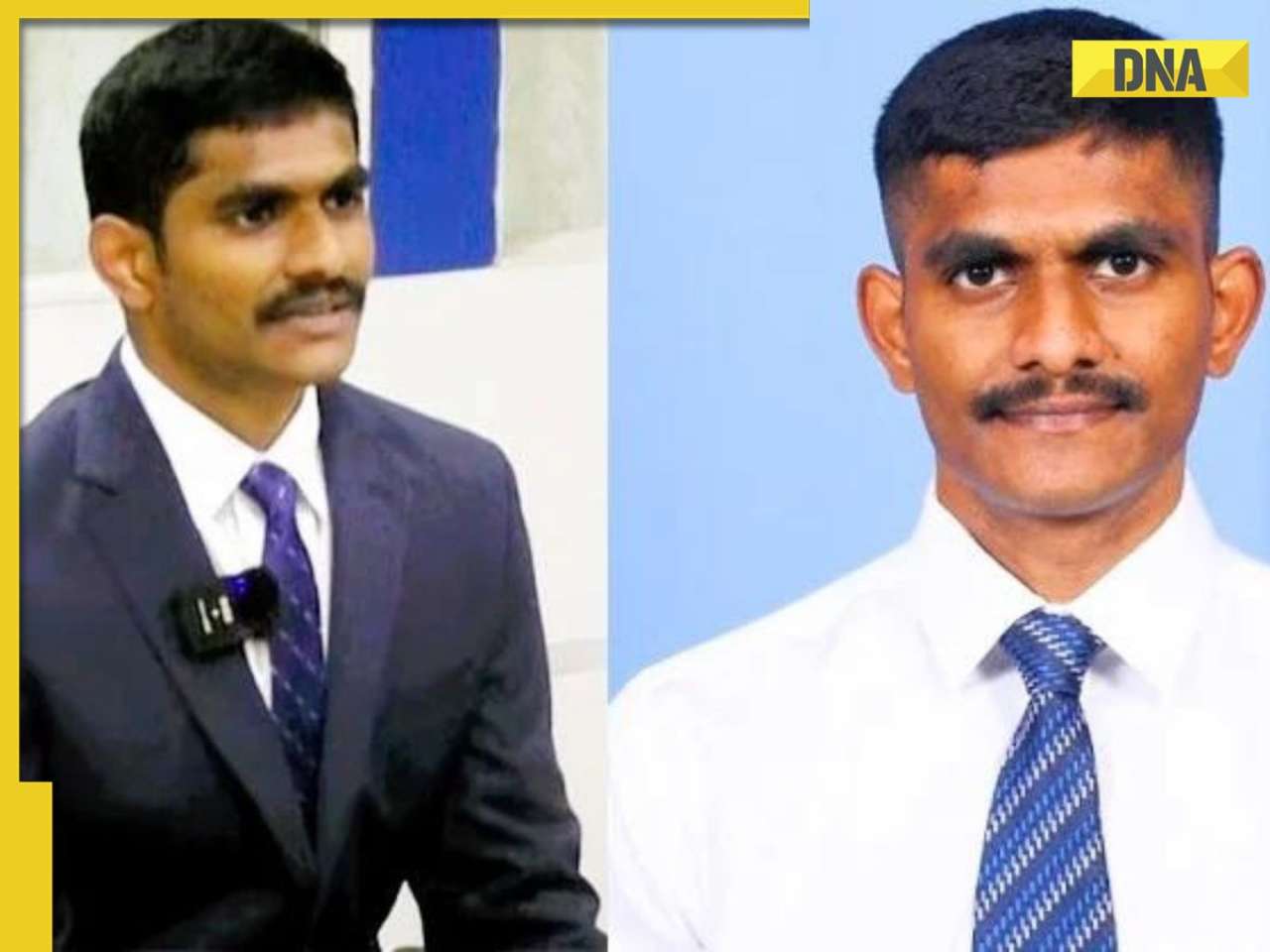
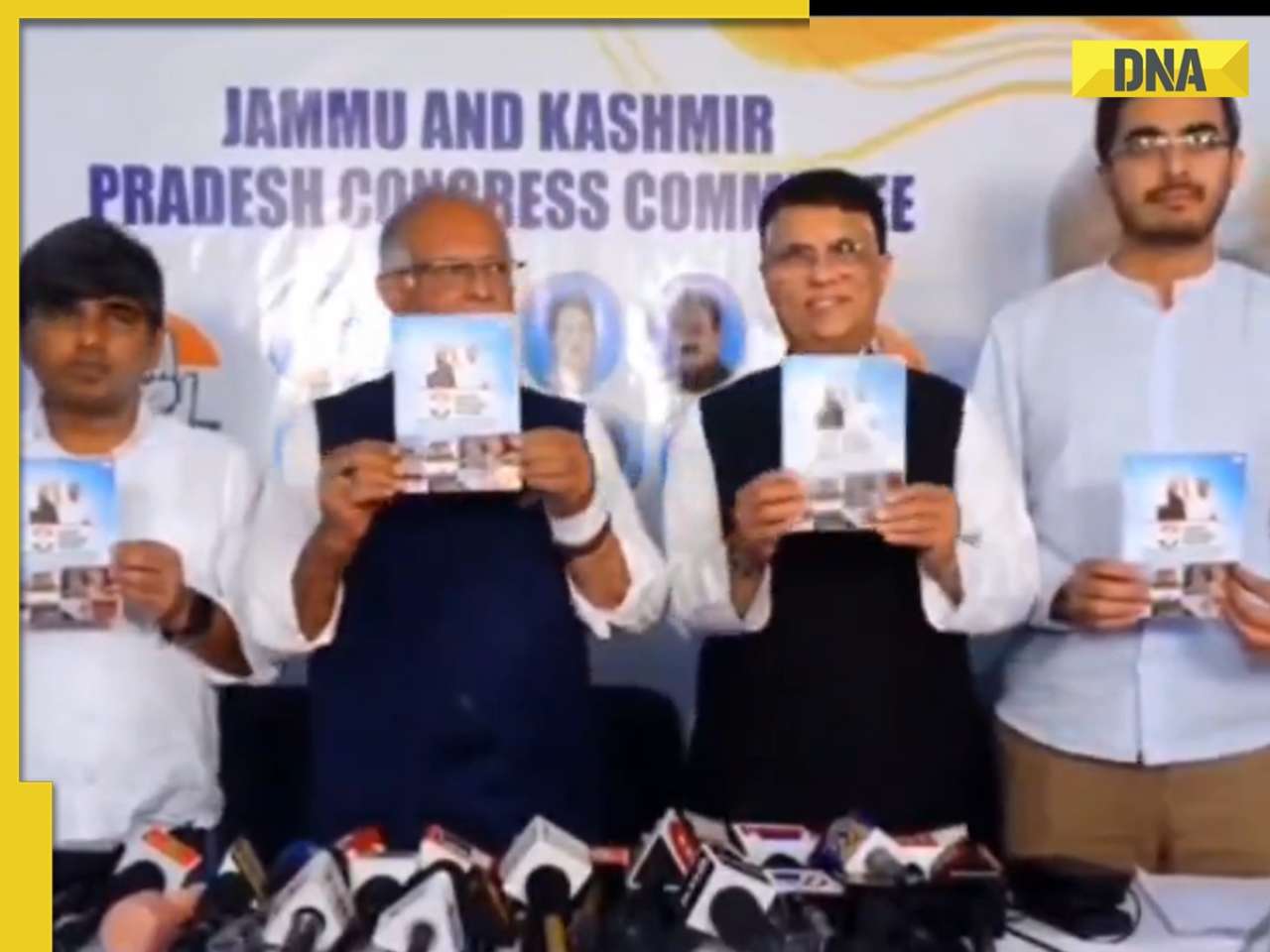
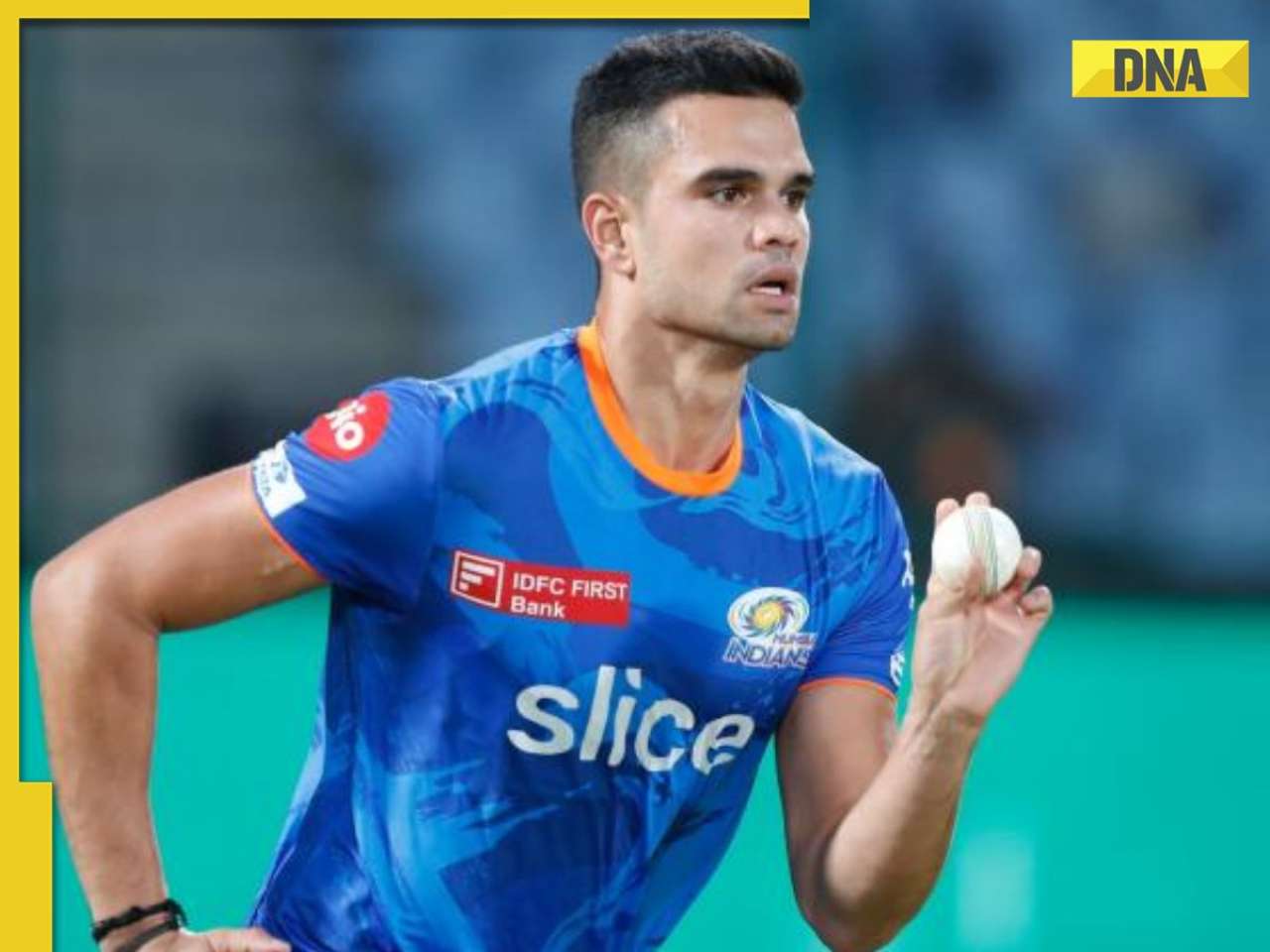





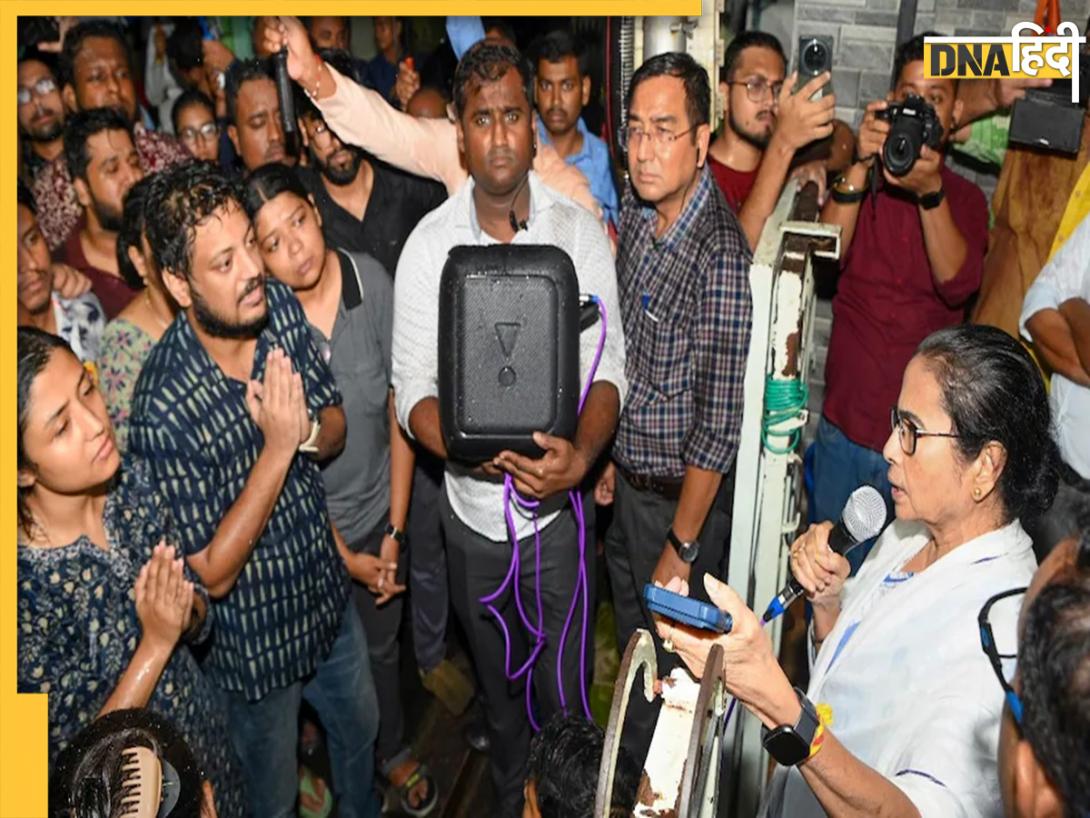
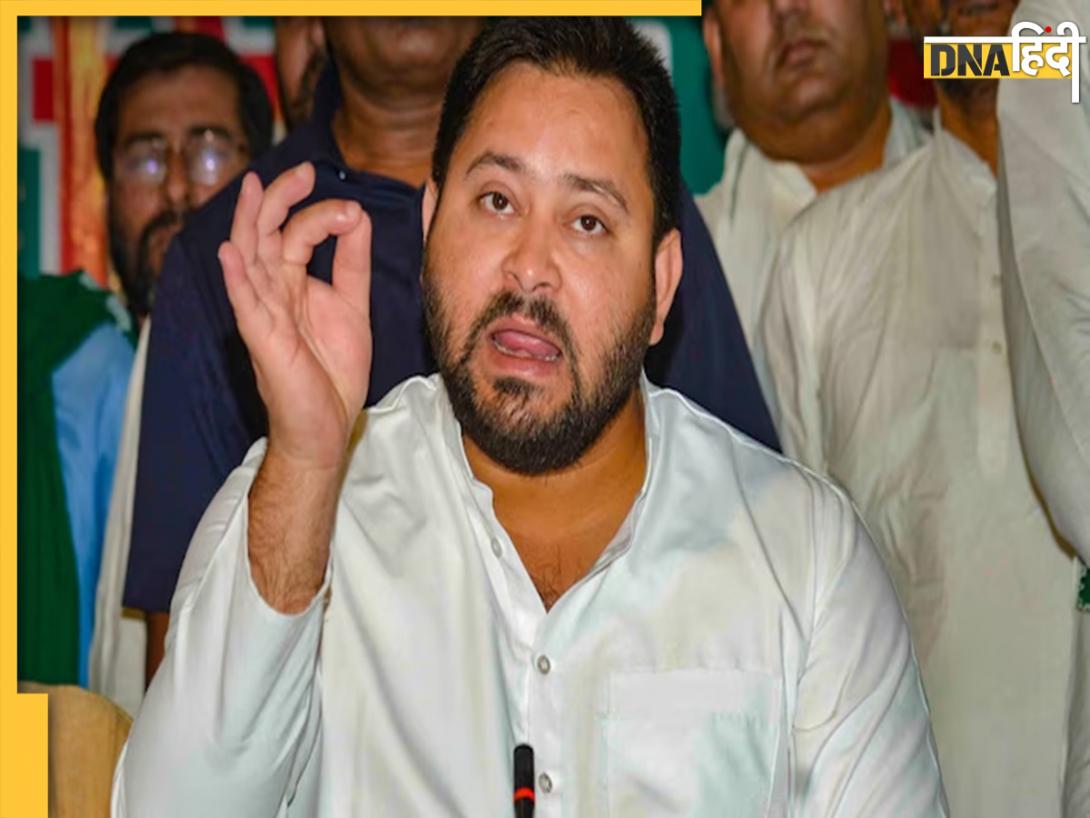

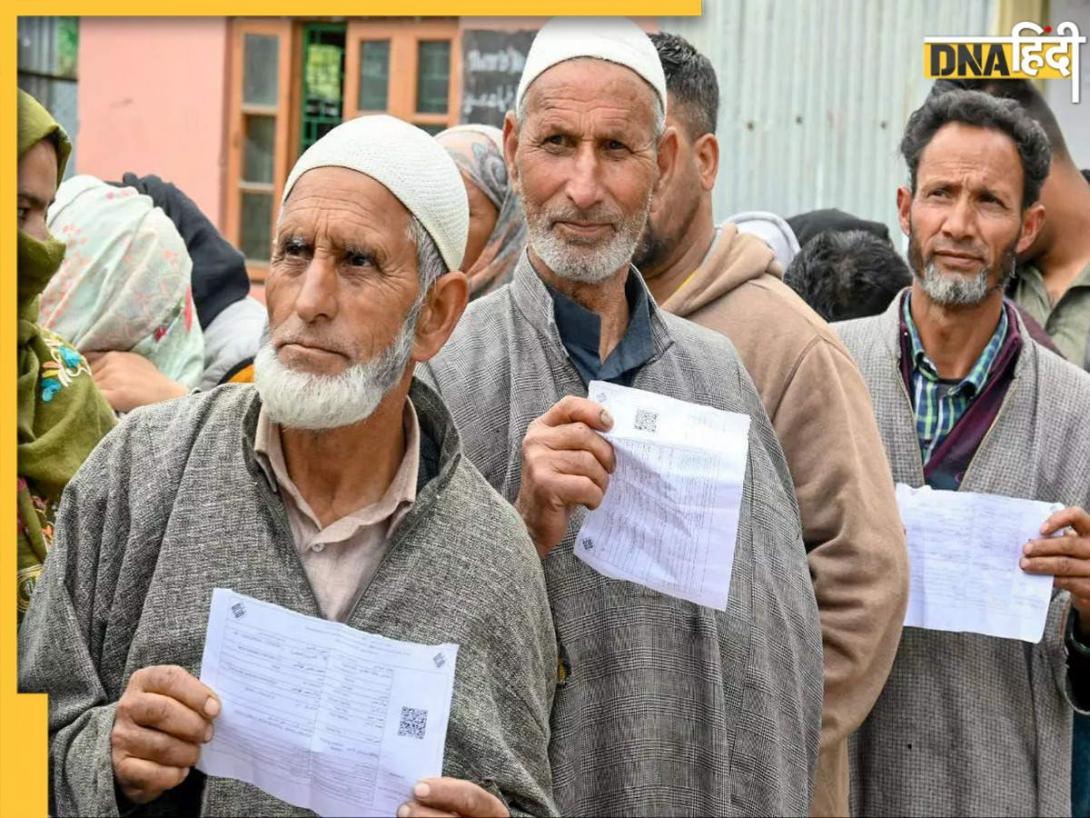






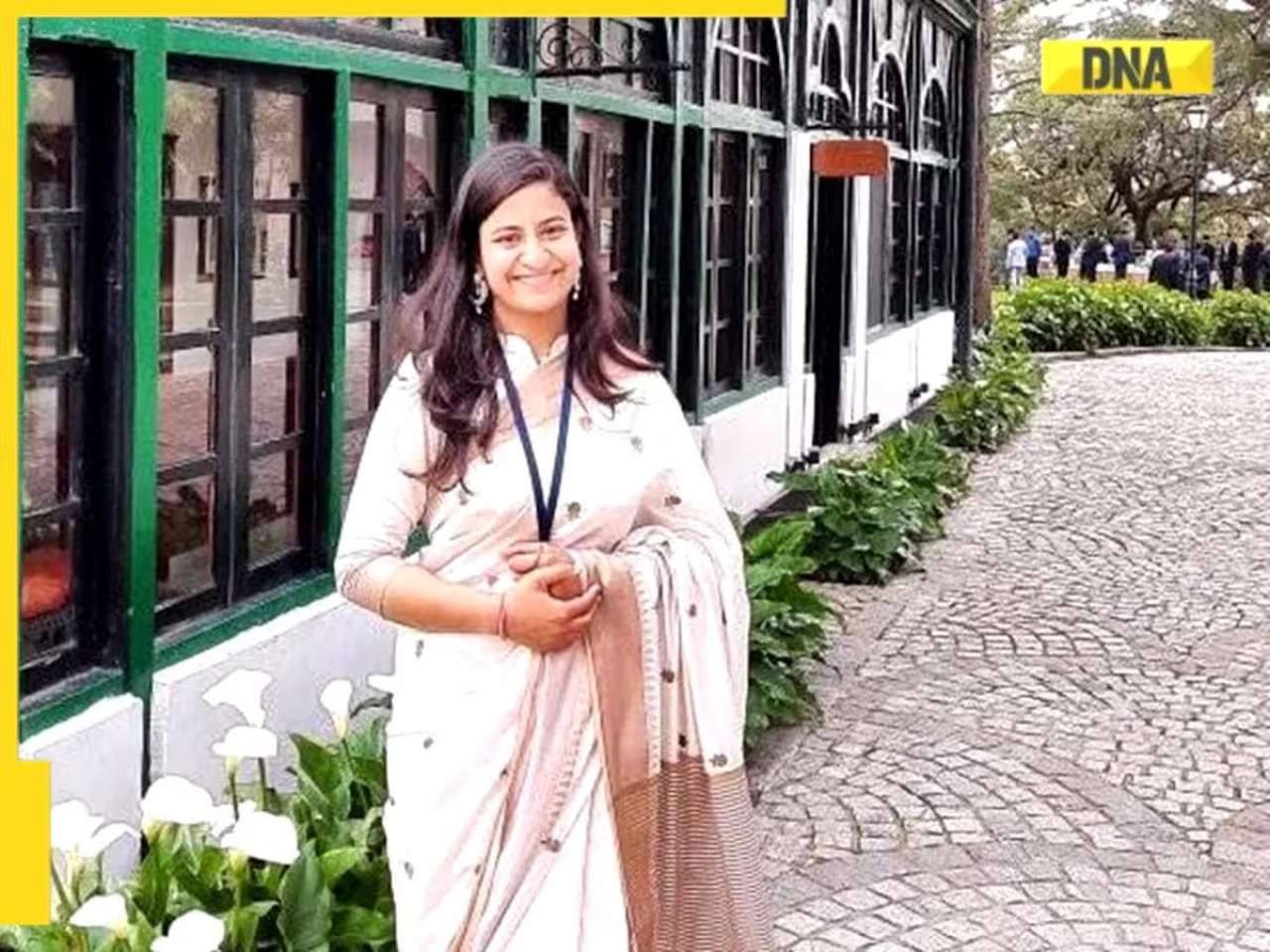
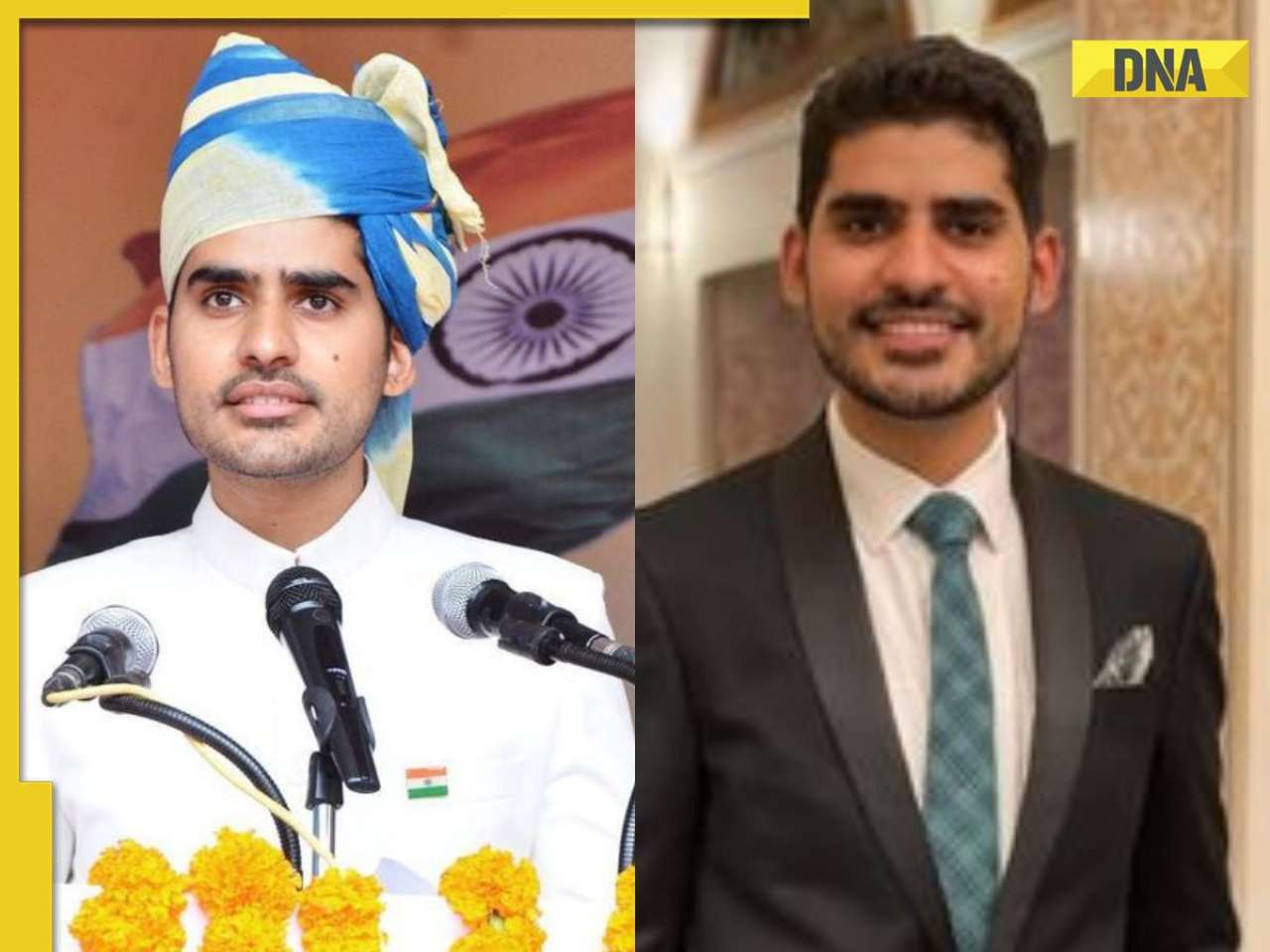

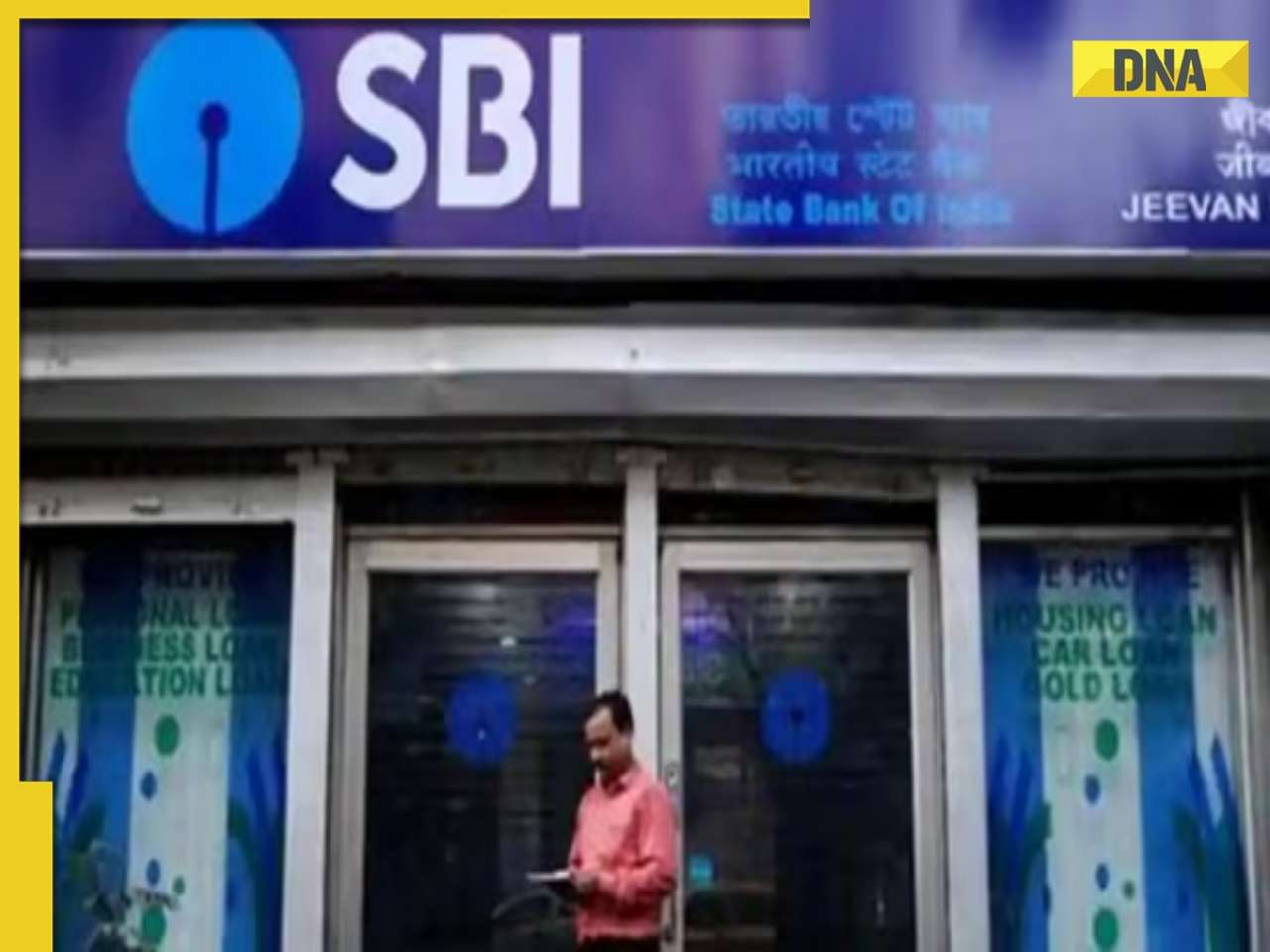
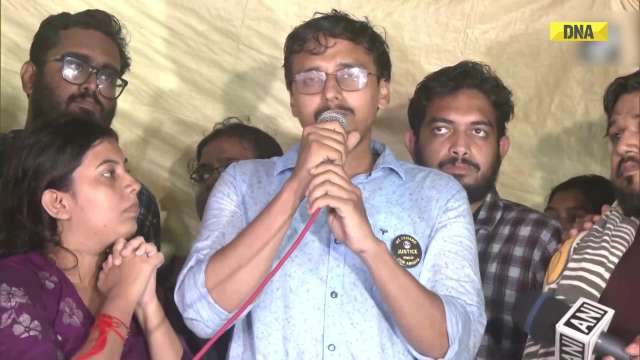
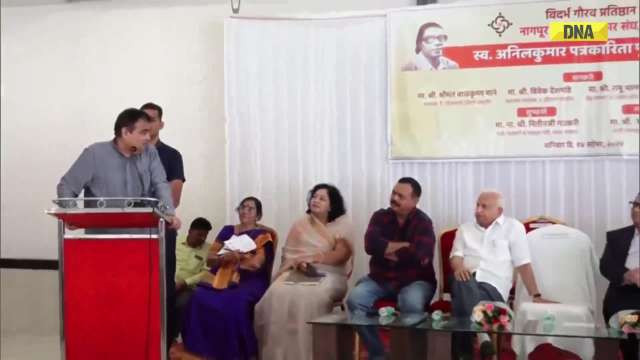
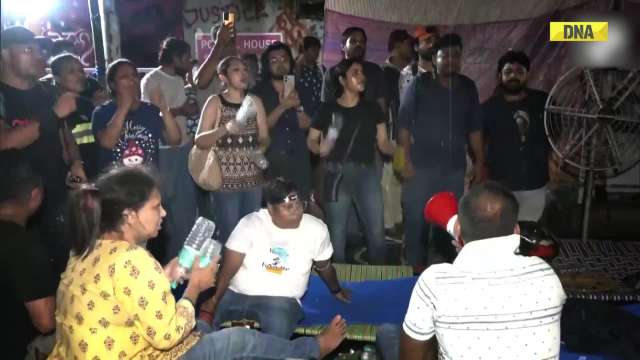

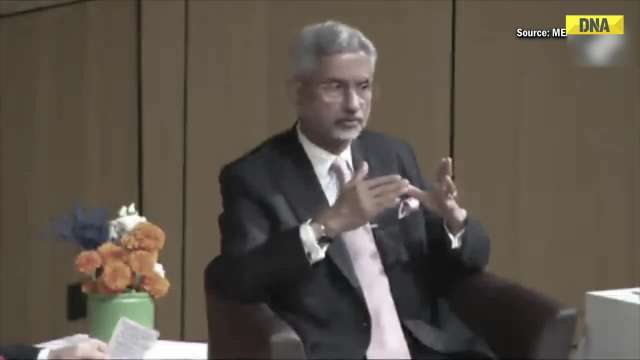
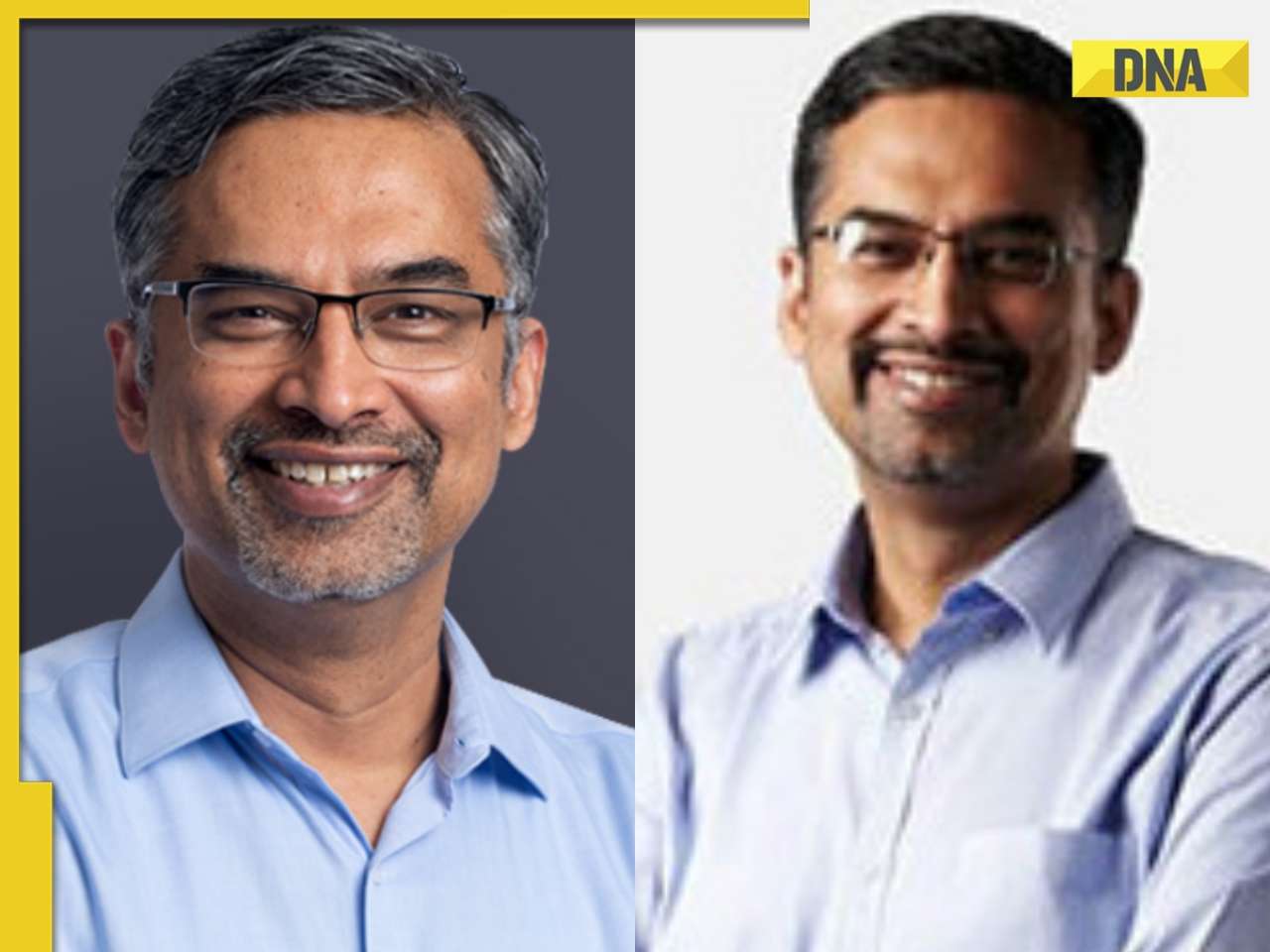

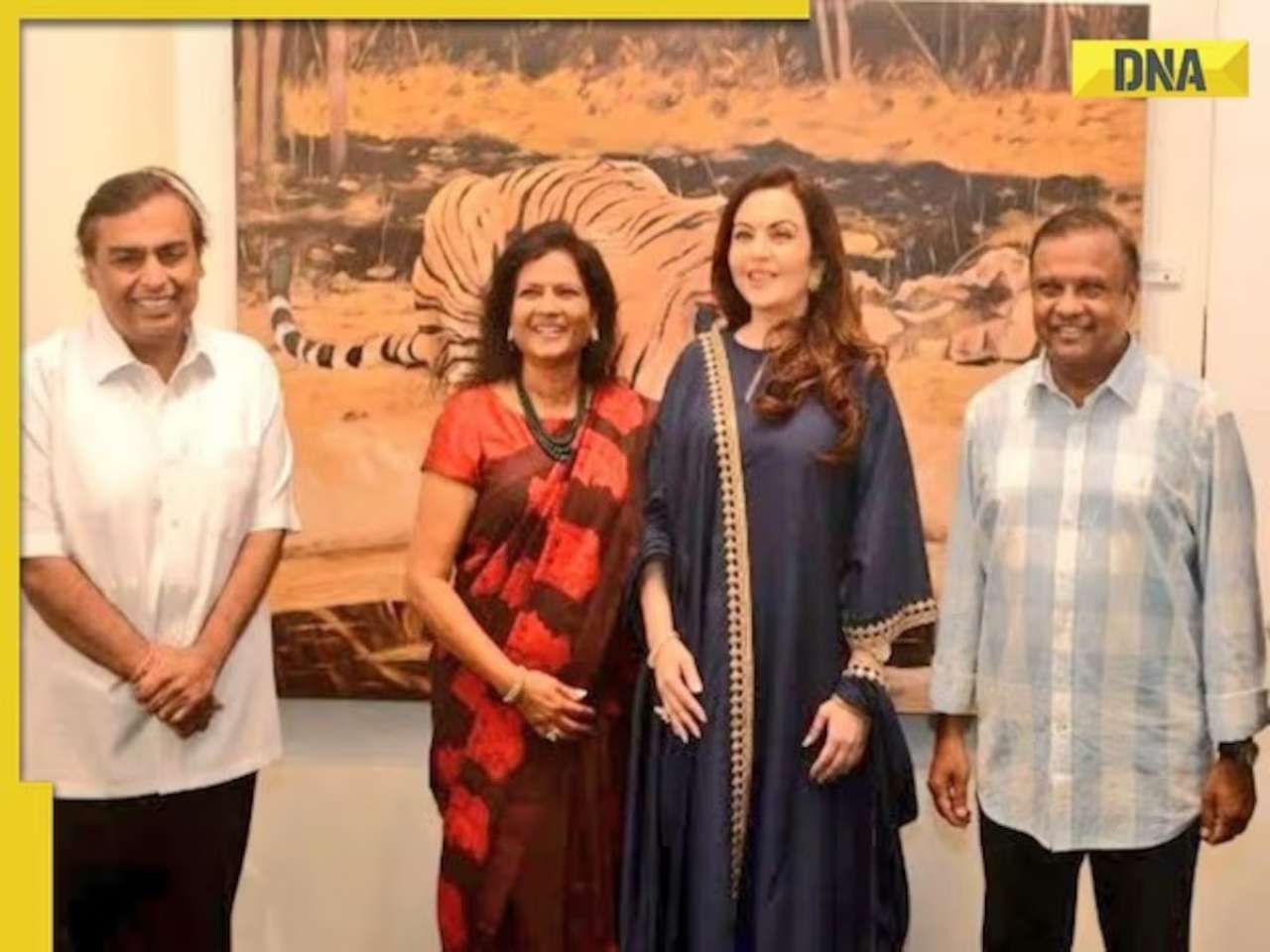
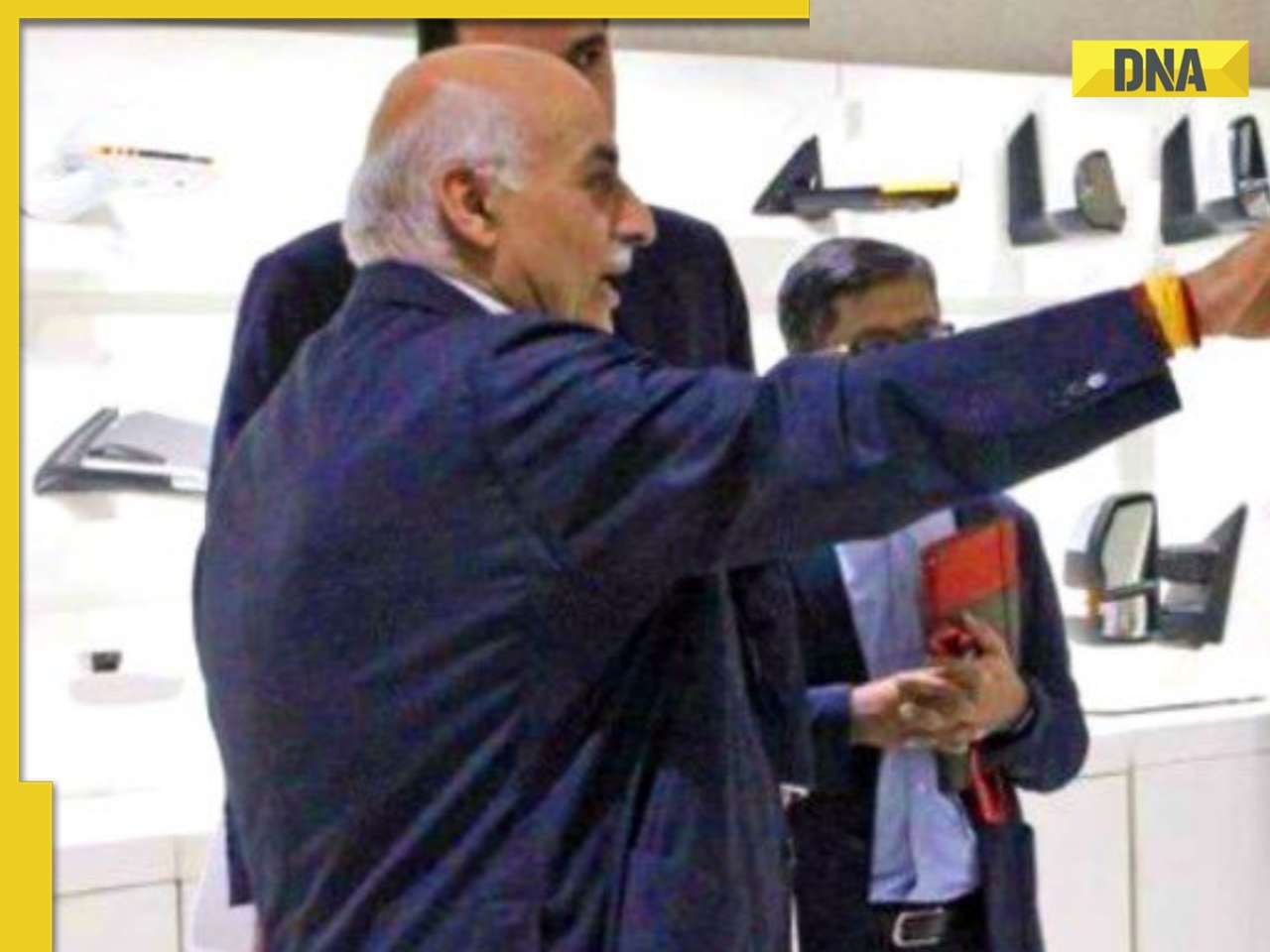

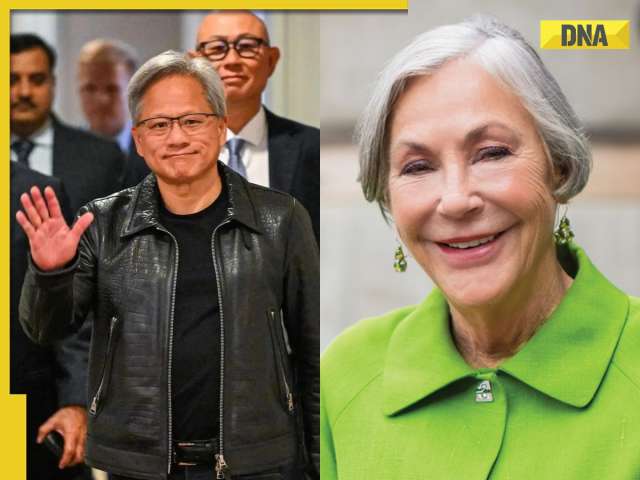
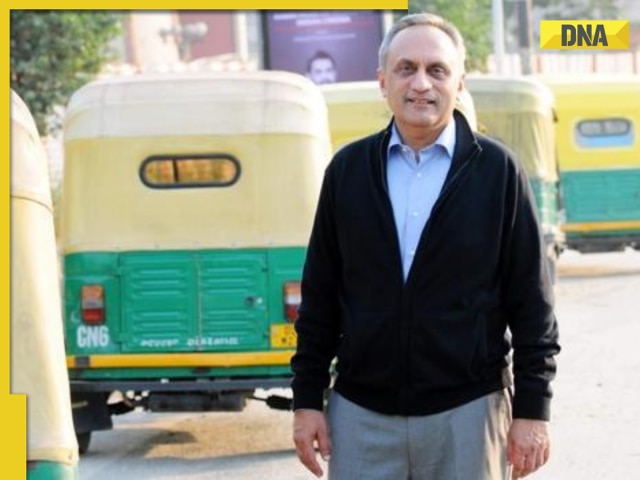


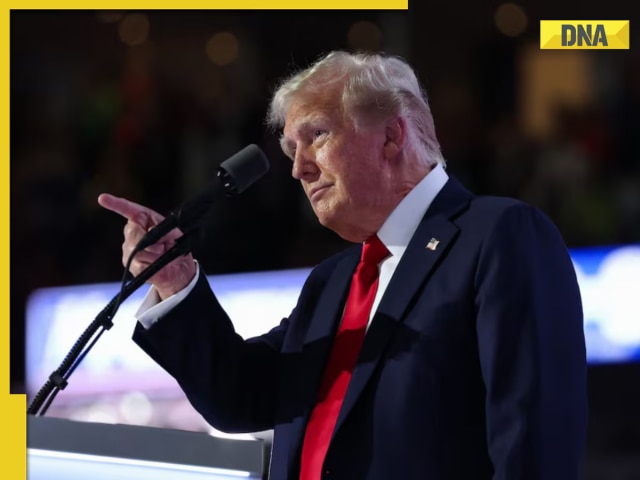
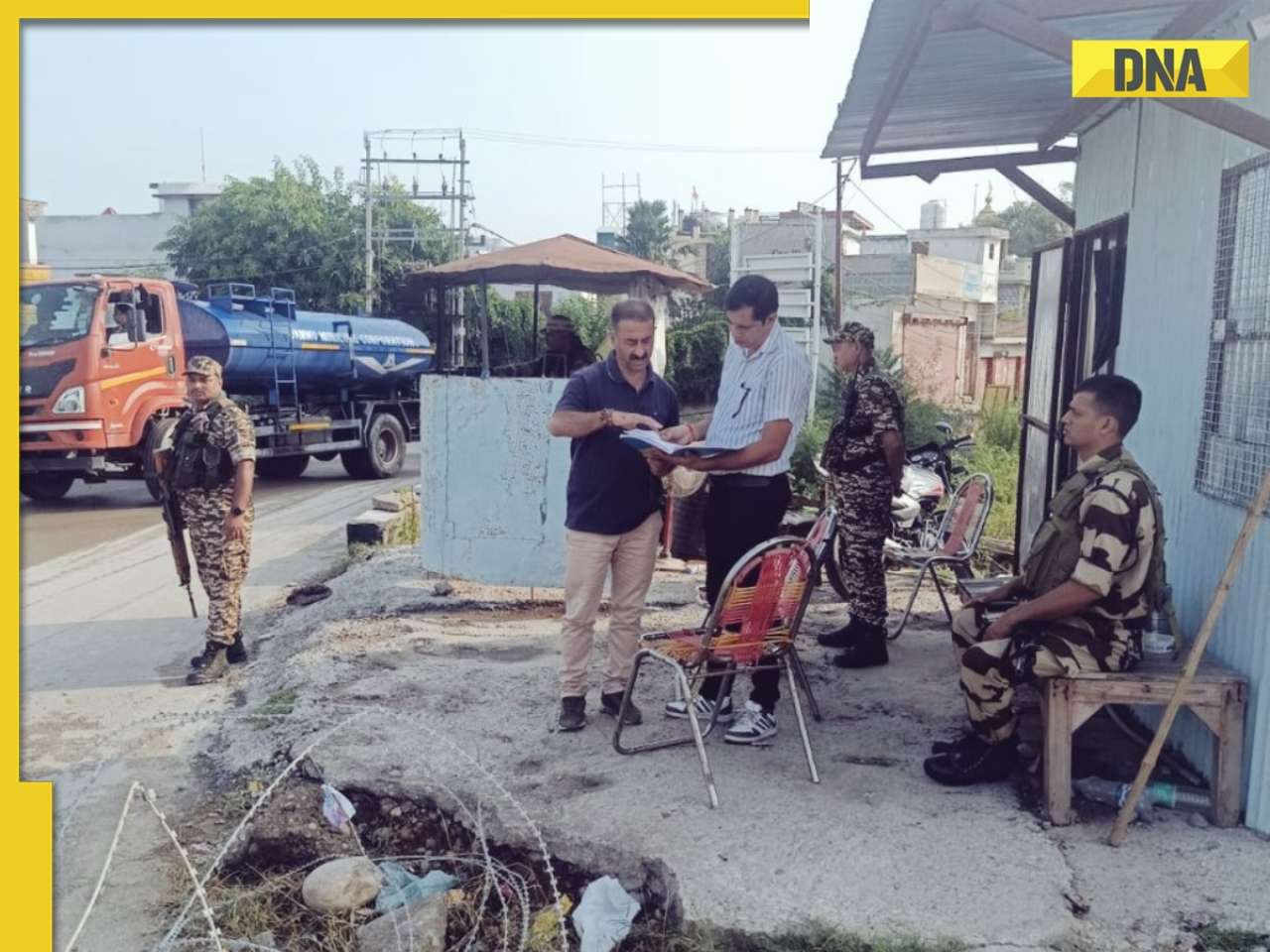
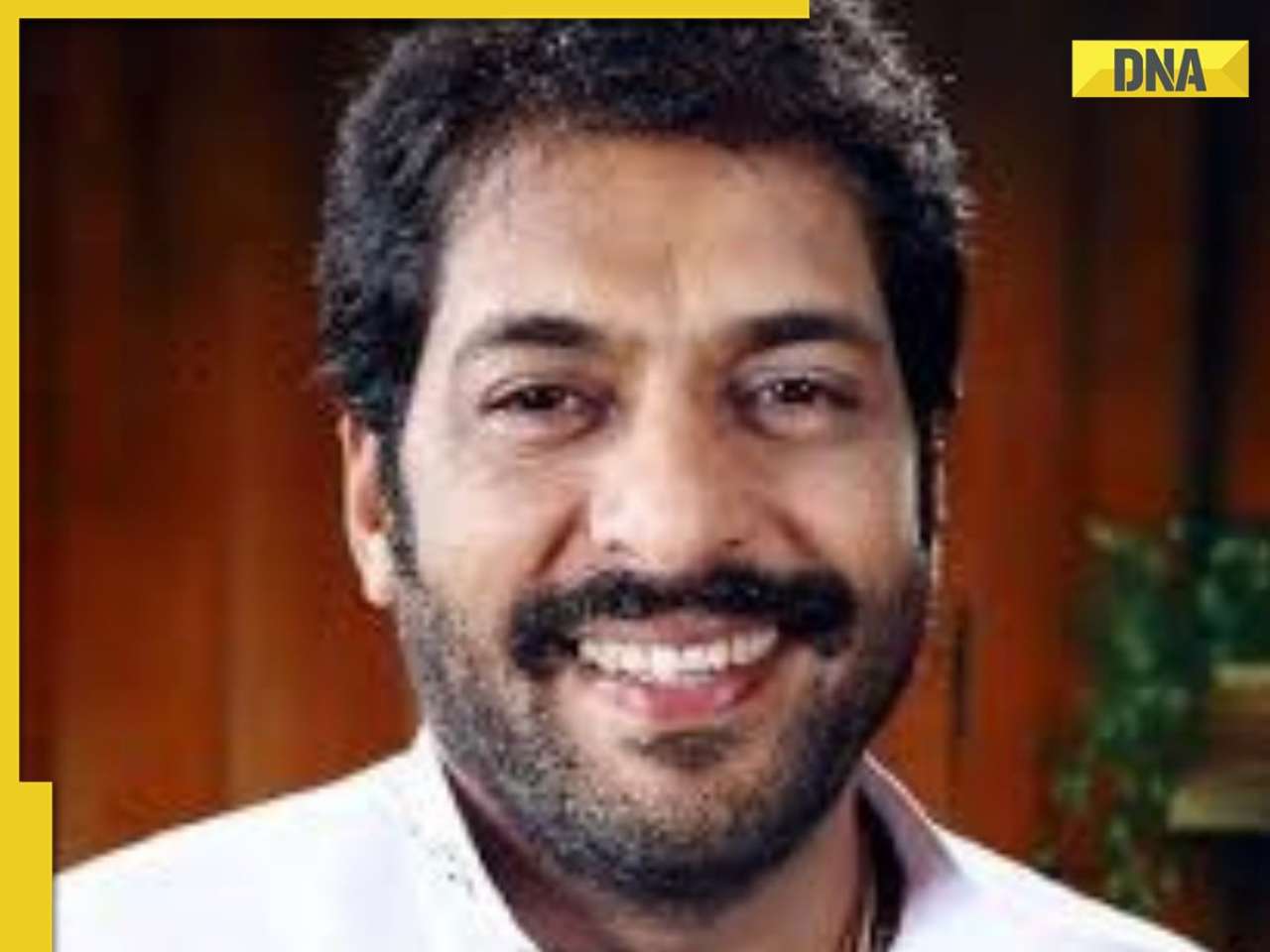
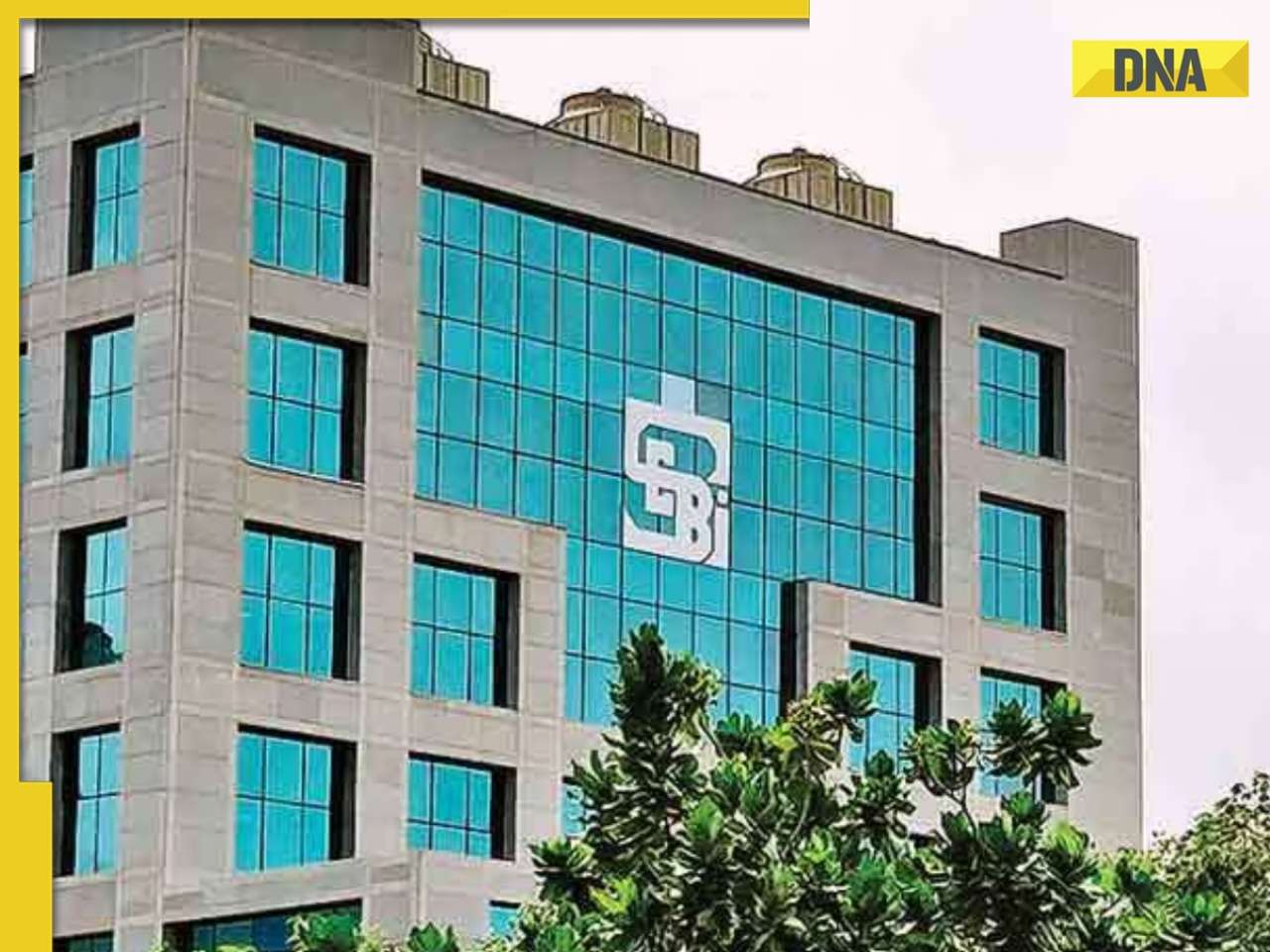
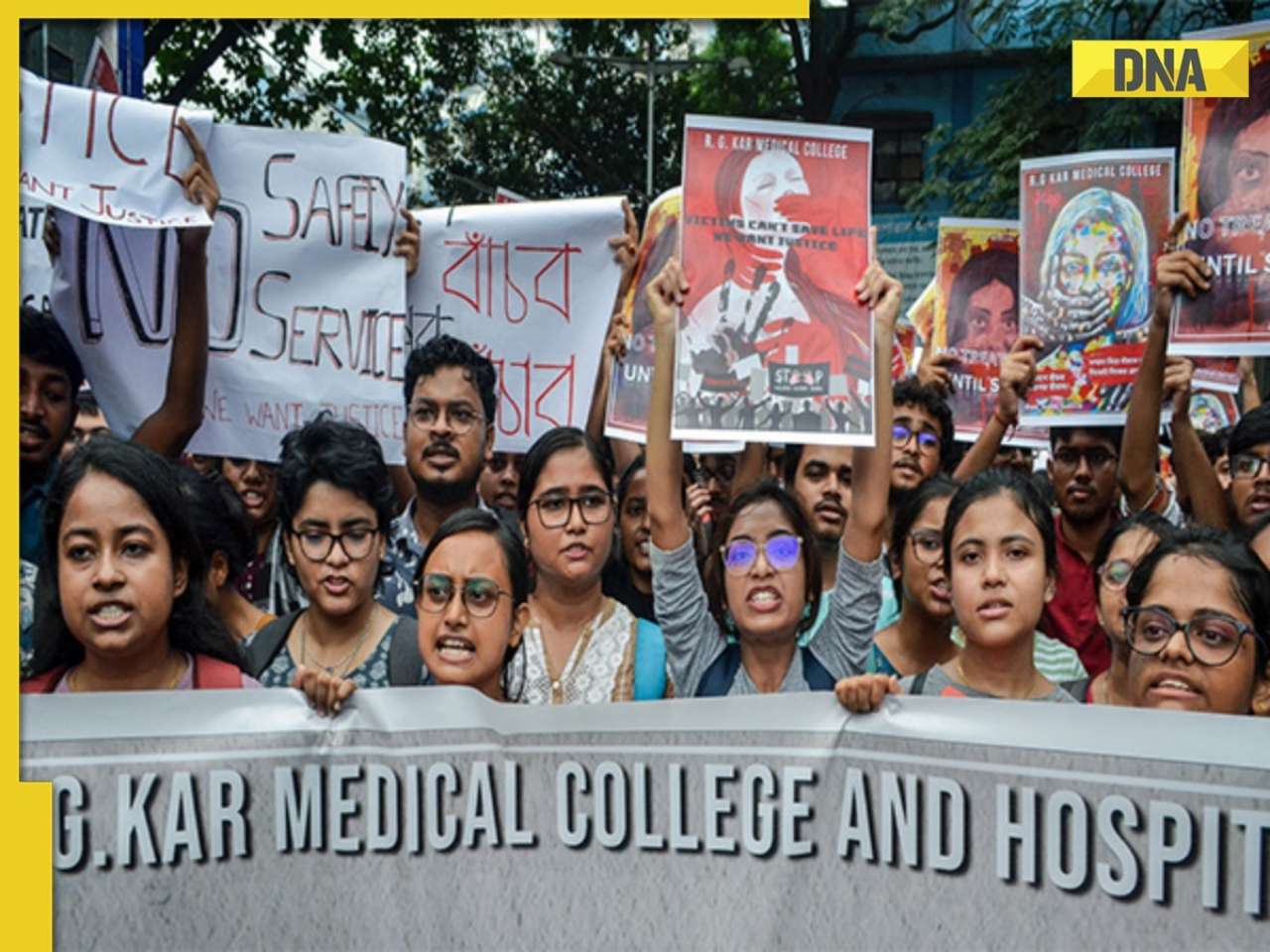

)
)
)
)
)
)
)
)
)
)
)
)
)
)
)





)
)
)
)
)
)